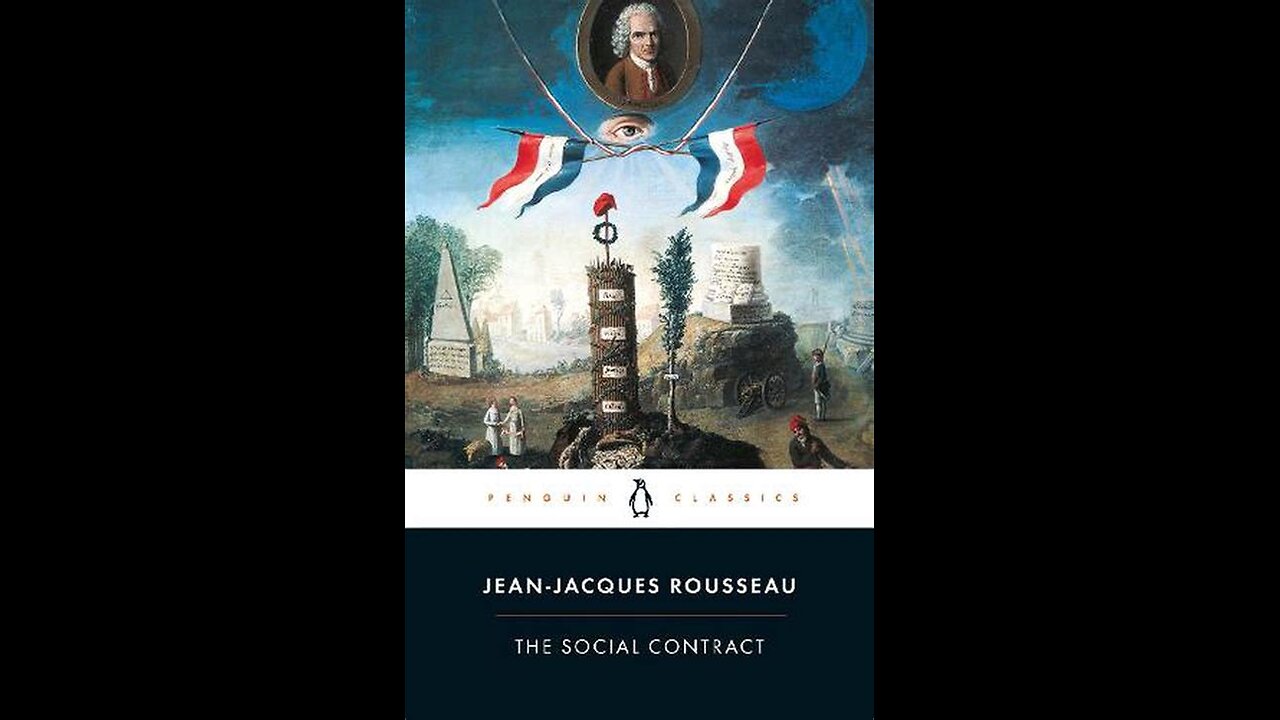Premium Only Content

The Social Contract by Jean-Jacques Rousseau | Summary and Critique
Buy Here: https://amzn.to/4jh9jZo
"""The Social Contract"" is a political treatise written by the French philosopher Jean-Jacques Rousseau in 1762. In this work, Rousseau argues that the basis of legitimate political authority lies in a social contract, in which individuals agree to give up some of their individual rights in exchange for protection and security provided by the state.
Rousseau believed that the natural state of humanity was one of freedom and equality, but that this state was threatened by the development of private property and social inequality. He argued that a legitimate government must be based on the principle of popular sovereignty, in which the people collectively hold the power to make decisions and govern themselves.
""The Social Contract"" has been praised for its emphasis on the importance of democracy and popular sovereignty in the political process. Rousseau's ideas about the importance of community and collective decision-making have been influential in the development of modern democratic theory.
However, the book has also been criticized for its ambiguous and sometimes contradictory arguments. Critics have argued that Rousseau's ideas about the nature of human society and the role of the state are overly simplistic and idealistic, and that his vision of a society based on popular sovereignty is difficult to implement in practice.
Furthermore, some have argued that Rousseau's ideas about individual rights and freedoms are not well-developed, and that his emphasis on the collective good may lead to the suppression of individual liberties. The book has also been criticized for its sometimes sexist and elitist language, as well as its apparent rejection of the Enlightenment ideal of progress.
Overall, ""The Social Contract"" remains a seminal work in political theory, whose ideas continue to be debated and discussed by scholars and political thinkers around the world. While it has been subject to criticism, its insights into the nature of political authority and the importance of popular sovereignty have had a lasting impact on modern political thought."
-
 2:41:49
2:41:49
Laura Loomer
10 hours agoEP99: Trump Dumps USAID As Leftists Panic!
93K39 -
 22:50
22:50
DeVory Darkins
14 hours ago $16.52 earnedDemocrats UNLEASH IMPEACHMENT on Trump
53.8K182 -
 1:17:34
1:17:34
Mike Rowe
11 hours agoA Masterclass In The Collapse Of Woke Culture With Anson Frericks
59.6K39 -
 17:51
17:51
Stephen Gardner
11 hours ago🔥YES!! Trump CUTS CORD on Democrats SECRET PROGRAM!
85.2K65 -
 2:16:49
2:16:49
TheSaltyCracker
11 hours agoMusk Destroys Gov't Money Pot ReeEEeE Stream 02-05-25
159K263 -
 1:10:59
1:10:59
FreshandFit
11 hours agoTop 3 Ways To Overcome A Break Up
122K16 -
 6:32:11
6:32:11
Akademiks
12 hours agoDrake Finally CUTS off FAKE FRIENDS in the Industry. VIOLATES KHALED, LEBRON! Announces album Feb14
95.6K12 -
 27:28
27:28
Glenn Greenwald
15 hours agoGlenn Reacts to Trump's Gaza Take Over: System Update Special
198K445 -
 2:13:49
2:13:49
Melonie Mac
11 hours agoGo Boom Live Ep 36!
108K10 -
 1:02:11
1:02:11
Sarah Westall
12 hours agoFreezing USAID & its Operations in Ukraine: A Massive Money Laundering Organization? w/ Sam Anthony
96K24